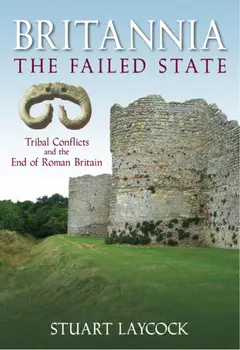Attempts to understand how Roman Britain ends and Anglo-Saxon England begins have been undermined by the division of studies into pre-Roman, Roman and early medieval periods. This groundbreaking new study traces the history of British tribes and British tribal rivalries from the pre-Roman period, through the Roman period and into the post-Roman period. It shows how tribal conflict was central to the arrival of Roman power in Britain and how tribal identities persisted through the Roman period and were a factor in three great convulsions that struck Britain during the Roman centuries. It explores how tribal conflicts may have played a major role in the end of Roman Britain, creating a 'failed state' scenario akin in some ways to those seen recently in Bosnia and Iraq, and brought about the arrival of the Anglo-Saxons. Finally, it considers how British tribal territories and British tribal conflicts can be understood as the direct predecessors of the Anglo-Saxon kingdoms and Anglo-Saxon conflicts that form the basis of early English History.
Britannia: The Failed State : Tribal Conflicts and the End of Roman Britain
Commencez ce livre dès aujourd’hui pour 0 €
- Accédez à tous les livres de l'app pendant la période d'essai
- Sans engagement, annulez à tout moment
Auteur(e) :
Langue :
anglais
Format :
The Little Book of England
Stuart Laycock, Philip Laycock
How Britain Brought Football to the World
Stuart Laycock, Philip Laycock
From My Old Stamp Album : Exotic Tales of Lost Countries
Stuart Laycock, Chris West
All the Countries We've Ever Invaded : And the Few We Never Got Round To
Stuart Laycock
Warlords : The Struggle for Power in Post-Roman Britain
Stuart Laycock
UnRoman Britain : Exposing the Great Myth of Britannia
Miles Russell, Stuart Laycock






